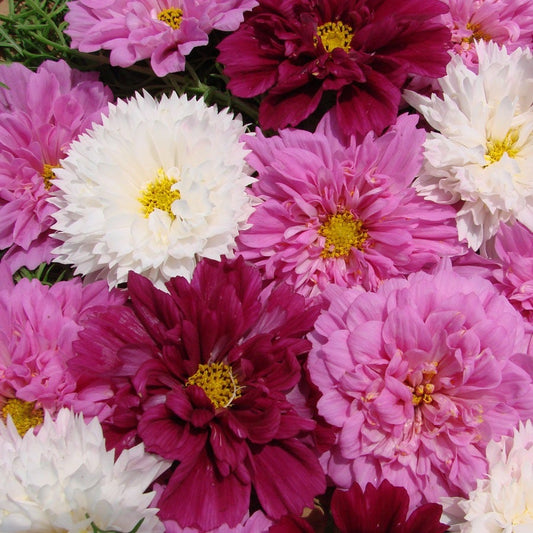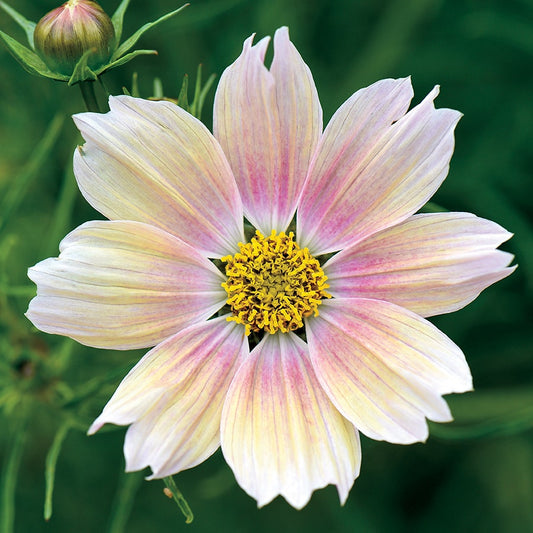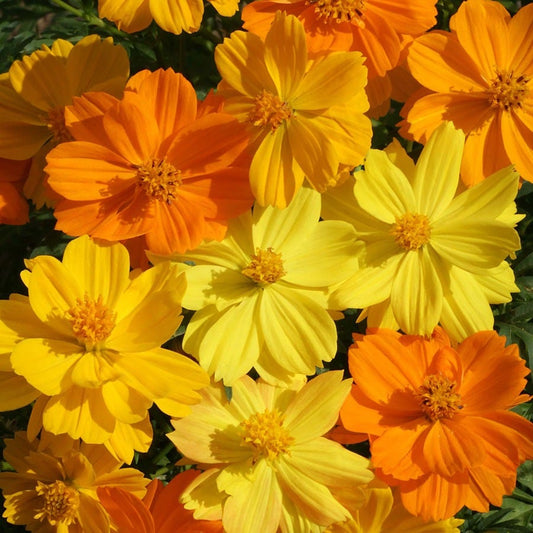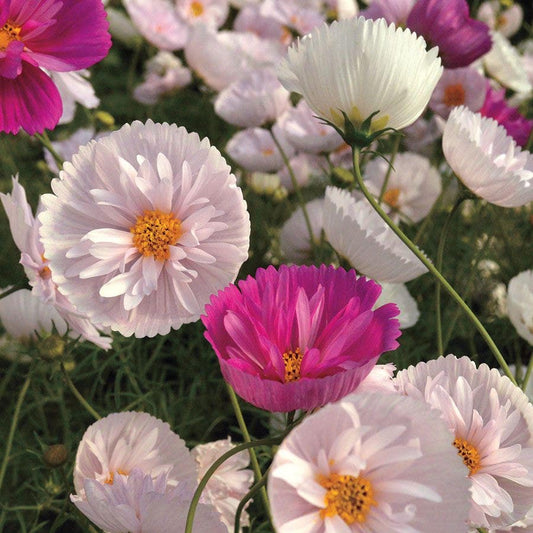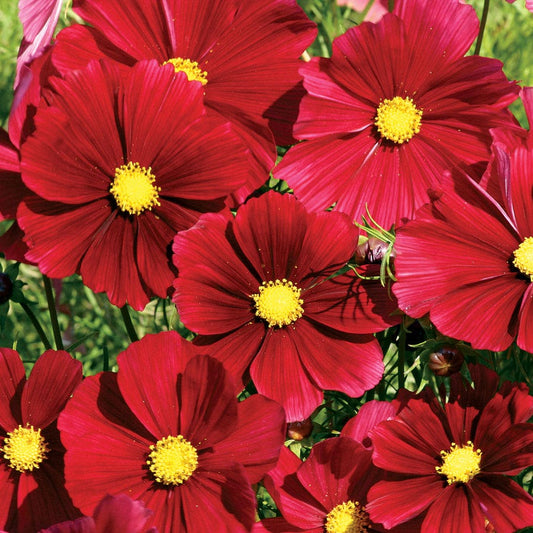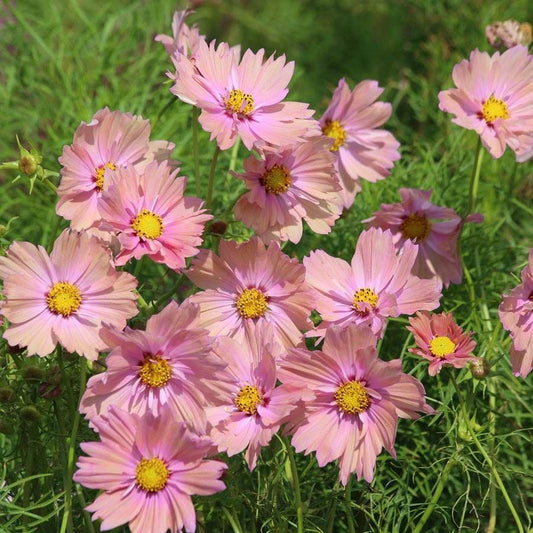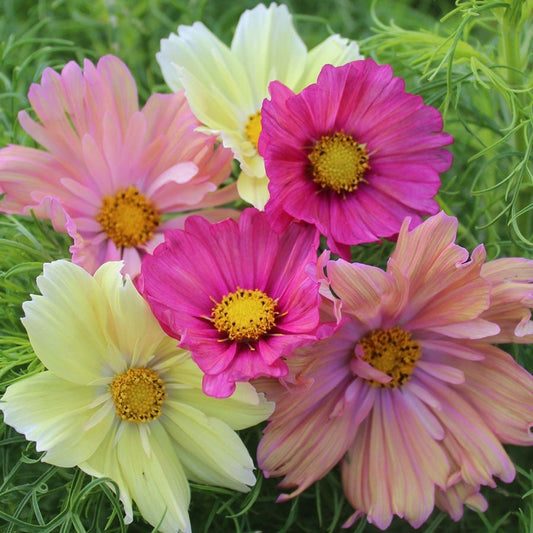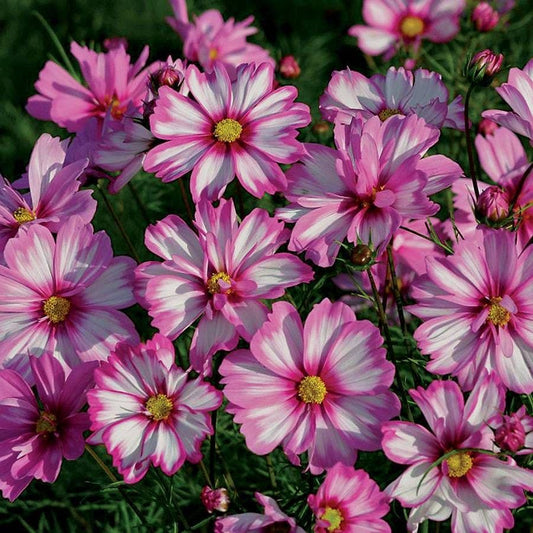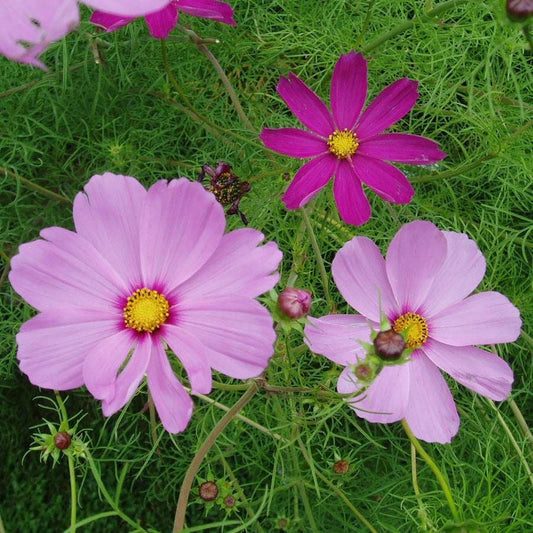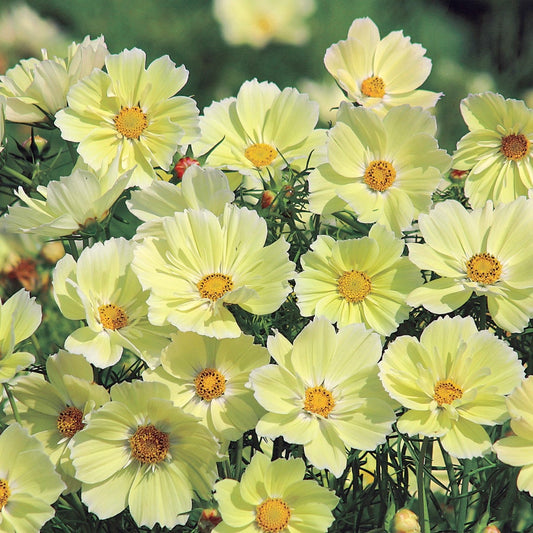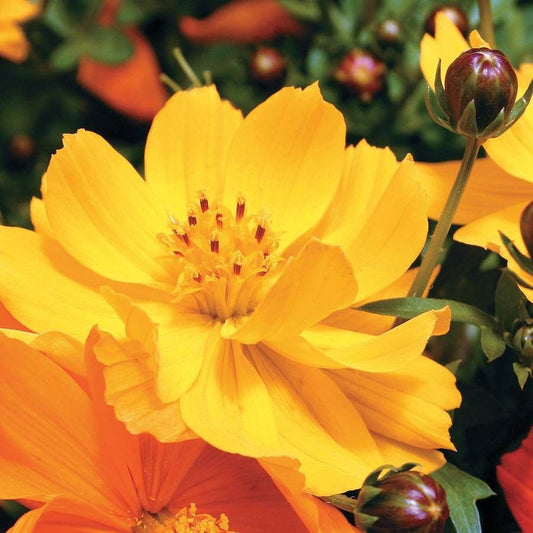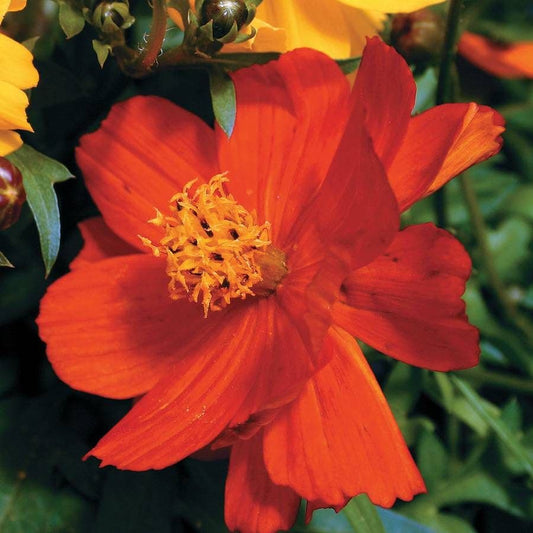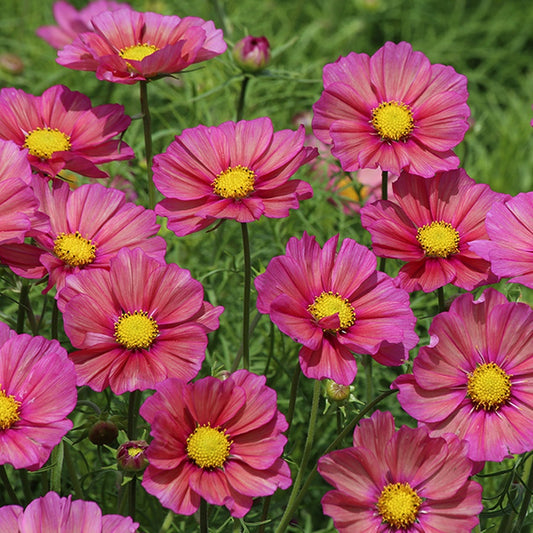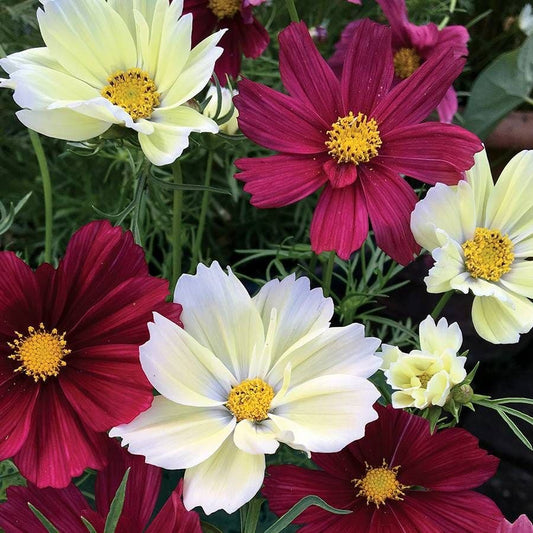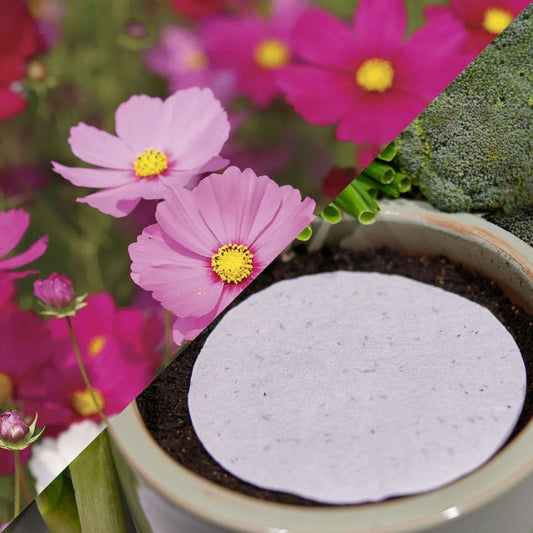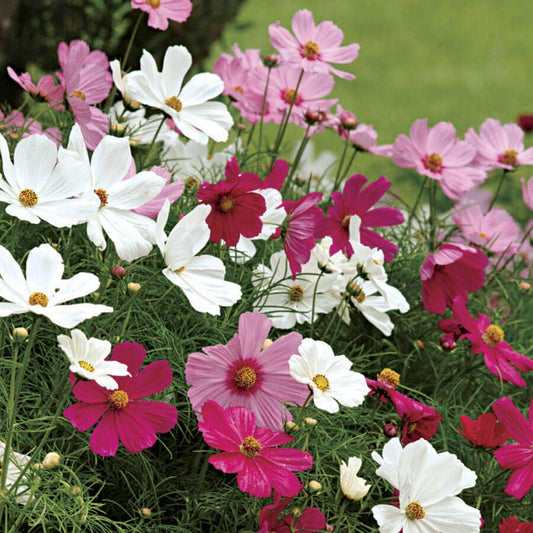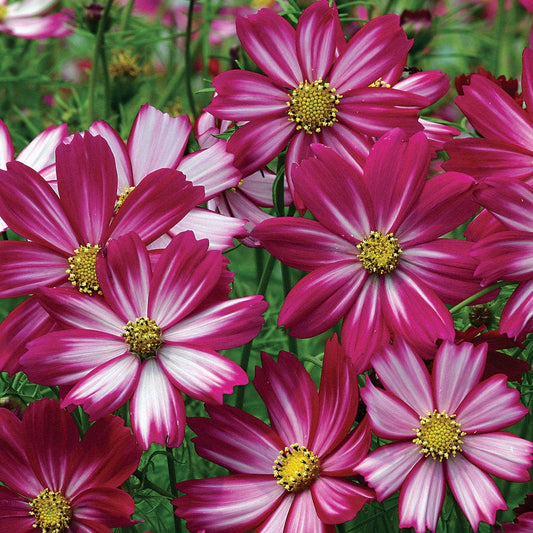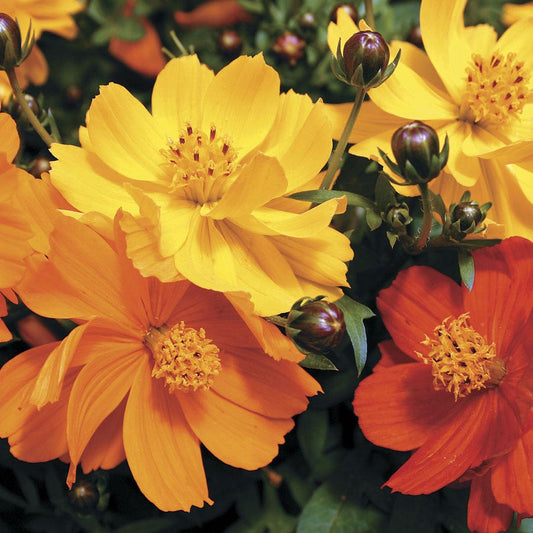Cosmos Seeds
Cosmos are one of the easiest and most rewarding flowers you can grow. With quick germination and an easy-care routine, these colorful plants make a great addition to any garden. Shop our selection of white, red, yellow, and mixed cosmos seeds for bright, long-lasting blooms.
-
Double Click Mix Cosmos Flower Seeds
Regular price From $2.95Regular priceUnit price / per -
'Apricot Lemonade' Cosmos Seeds
Regular price From $4.95Regular priceUnit price / per -
Sea Shells Mix Organic Cosmos Seeds
Regular price From $2.95Regular priceUnit price / per -
'Bright Lights' Cosmos Seeds
Regular price From $2.95Regular priceUnit price / per -
Cosmos bipinnatus 'Cupcakes and Saucers Mix' Seeds
Regular price From $4.95Regular priceUnit price / per -
'Rubenza' Cosmos Seeds
Regular price $2.95Regular priceUnit price / per -
'Apricotta' Cosmos Seeds
Regular price $3.95Regular priceUnit price / per -
Cotton Candy Mix Cosmos Seeds
Regular price $5.95Regular priceUnit price / per -
'Capriola' Cosmos Seeds
Regular price $4.95Regular priceUnit price / per -
Sensation Mix Cosmos Seeds
Regular price $3.95Regular priceUnit price / per -
Xanthos Cosmos Seeds
Regular price From $3.95Regular priceUnit price / per -
Cosmic Orange Cosmos Flower Seeds
Regular price $5.95Regular priceUnit price / per -
Cosmic Yellow Cosmos Flower Seeds
Regular price $5.95Regular priceUnit price / per -
Cosmic Red Cosmos Seeds
Regular price $6.95Regular priceUnit price / per -
'Xsenia' Cosmos Seeds
Regular price From $5.95Regular priceUnit price / per -
Cherry Pie Blend Cosmos Seeds
Regular price $4.95Regular priceUnit price / per -
Sow Effortless Collection™ Cosmos Sensation Mix Seed Discs Set of 2
Regular price $12.95Regular priceUnit price / per -
Sonata™ Mix Cosmos Flower Seeds
Regular price From $4.95Regular priceUnit price / per -
Peppermint Candy Cosmos Seeds
Regular price From $5.95Regular priceUnit price / per -
Cosmic Mix Cosmos Seeds
Regular price $29.95Regular priceUnit price / per
Cosmos Seeds
Are Cosmos Difficult to Grow from Seed?
No, cosmos flowers are considered one of the easiest to grow from seed. They thrive in full sun, tolerate poor soil, and require very little maintenance. Even beginner gardeners can successfully grow a cosmos garden.
You can start your seeds indoors 4 to 6 weeks before your last frost date or sow them directly outdoors once the soil has warmed. Just press them lightly into the soil without covering them too deeply—cosmos need light to germinate.
With a little water and patience, you'll see sprouts in about a week.
Do I Need to Soak Cosmos Seeds Before Planting?
No soaking is required for cosmos seeds, making them an easy and convenient choice for any gardener. You can sow them directly outdoors after your last frost date, or start them indoors using seed trays and a grow light.
Keep the soil moist but not soggy, and you’ll typically see seedlings appear within 7 to 10 days. For faster germination, maintain a soil temperature between 65–75°F.
What Month Do Cosmos Bloom?
Cosmos typically bloom from early summer through the first frost, offering months of color. In most USDA Hardiness Zones 3–7, you can expect blooms from June to September if planted in April or May.
In warmer zones like 8–10, planting as early as March can lead to continuous blooms from May through October or even longer. These flexible bloom times make cosmos a perfect choice for summer gardens across the country.
Make sure to check our USDA Hardiness Zone map if you aren’t sure which one applies to you.
What Flowers Pair Well with Cosmos?
Cosmos make great companions for zinnias, marigolds, sunflowers, and black-eyed Susans. These combinations increase visual appeal and attract pollinators like bees and butterflies.
Avoid pairing cosmos with water-loving or shade-preferring plants such as hostas, impatiens, or ferns. These plants thrive in different growing conditions and may crowd out or overshadow your cosmos.
Tip: Plant with zinnia seeds for a low-maintenance, pollinator-friendly bed.
Are Cosmos Deer Resistant?
Yes, cosmos are generally deer resistant. While no plant is 100% safe from a hungry deer, cosmos are not a preferred snack and are usually left alone in the landscape.
If you're still worried, consider using a safe pest repellent to keep your cosmos intact and beautiful all season long.
